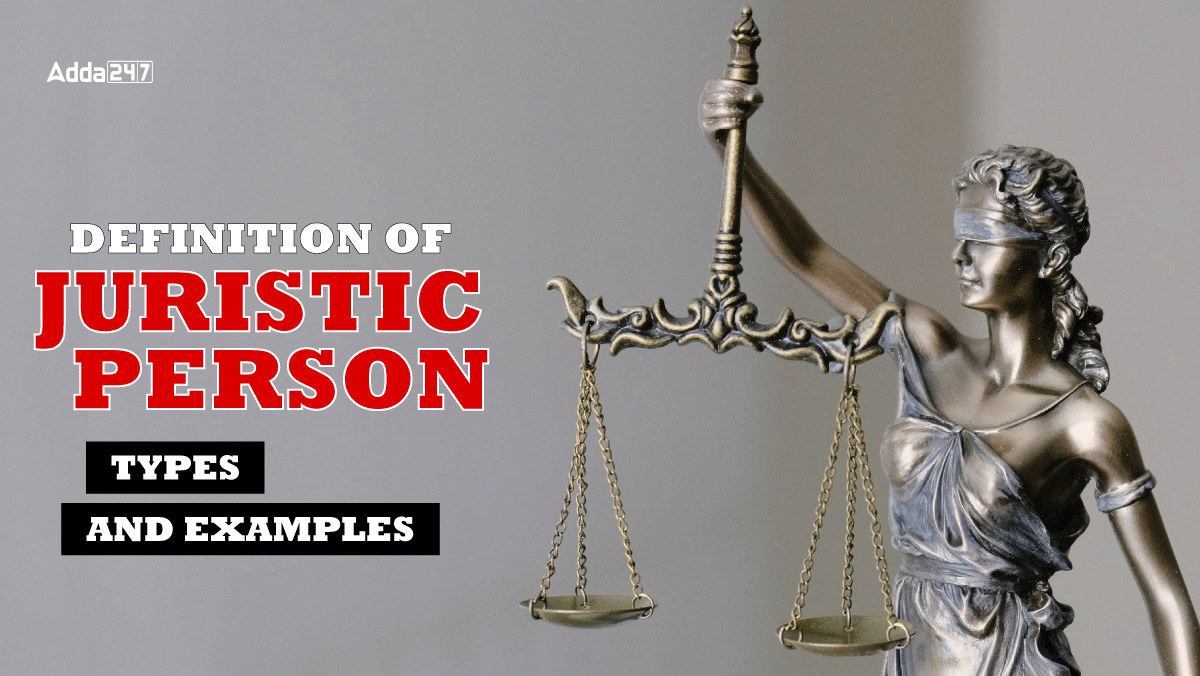Table of Contents
The concept of juristic persons, also known as artificial persons or legal persons, plays a critical role in the modern legal system. These are non-human entities that the law recognizes as having legal rights and obligations similar to those of natural persons (human beings). Juristic persons can own property, enter into contracts, and initiate legal actions. The recognition of juristic persons helps various organizations and entities participate in legal and commercial transactions, providing them with the necessary framework to function effectively in society. This article delves into the meaning, types, and examples of juristic persons, exploring their importance and role in contemporary law.
Juristic Persons in Law
A Juristic person is an entity created by law that is capable of having rights and duties. While natural persons, or human beings, inherently possess legal capacity, a juristic person gains such capacity through legal recognition. This recognition allows them to engage in activities like owning property, entering into contracts, and filing lawsuits. The distinction between natural and juristic persons lies in the fact that juristic persons exist by legal fiction, meaning they are not physically alive but are treated as individuals for legal purposes.
The recognition of juristic persons is crucial for the efficient functioning of Corporations, non-profit organizations, and even religious institutions. In the case of Shiromani Gurdwara Parbandhak Committee v. Som Nath Dass & Others (2000), the Supreme Court of India emphasized the essence of a juristic person, defining it as “an entity in law recognized as a person which it otherwise is not.”
Juristic Person Types
The legal system categorizes juristic persons into different types, primarily to manage their legal rights and obligations. There are two primary categories of juristic persons:
- Corporations: Corporations are formal legal entities that are created under specific Statutes. They can be for-profit or non-profit organizations. For-profit corporations, such as businesses, are established to generate profit for their shareholders. They enjoy separate legal identities, meaning that they can own property, sue or be sued, and continue to exist regardless of changes in ownership. A notable case in India, Tata Engineering & Locomotive Co. Ltd. v. State of Bihar (1964), affirmed that Corporations have distinct legal personalities separate from their members. Non-profit Corporations, on the other hand, are established for social causes and are not primarily profit-driven. They still enjoy legal recognition, allowing them to operate with many of the same privileges as for-profit Corporations.
- Unincorporated Associations: These include partnerships, clubs, religious organizations, and other informal groups that are not registered as Corporations. Unincorporated associations do not have the same level of legal rights as Corporations. They may have some legal capacity, such as the ability to enter into contracts or own property, but their rights are typically limited. Unlike Corporations, unincorporated associations usually do not have a separate legal identity from their members, and liability may fall on individual members rather than the association as a whole.
Juristic Person Examples
Some notable examples of juristic persons include:
- Corporations: Legal entities such as Tata Motors and Reliance Industries are examples of juristic persons. They possess distinct legal identities separate from their shareholders.
- Deities: The recognition of deities as juristic persons is deeply rooted in Indian jurisprudence. Hindu idols like Lord Krishna and Lord Ram have been treated as legal entities in cases like Bishwanath And Anr vs Shri Thakur Radhaballabhji & Ors (1967), where the Court allowed devotees to act on behalf of the deity.
- Animals and Rivers: In certain cases, Courts have recognized animals and rivers as juristic persons to protect their rights and welfare. The Punjab and Haryana High Courts recognized animals as legal entities, and in New Zealand, the Whanganui River was granted legal personhood. While the Indian Supreme Court overruled the Uttarakhand High Court’s decision to grant the Ganga and Yamuna rivers legal status, the recognition of natural entities as legal persons remains a significant legal development, and this area of law continues to evolve.
The Role of Juristic Persons in Modern Law
Juristic persons serve several critical functions in the legal system. By recognizing non-human entities as legal persons, the law allows for the smooth operation of businesses, religious institutions, and charitable organizations. Without this recognition, entities like Corporations would face numerous challenges in owning property, entering contracts, or litigating in Court.
Corporations, in particular, benefit from legal personality as it limits the liability of shareholders, ensuring that personal assets are protected in the event of corporate bankruptcy. Additionally, recognizing deities and temples as juristic persons help safeguard religious property and manage its affairs effectively.
Case Studies: Juristic Persons in Action
- Tata Engineering & Locomotive Co. Ltd. v. State of Bihar (1964): The Supreme Court of India ruled that a Corporation is distinct from its stakeholders, upholding its status as a separate legal entity with its rights and responsibilities.
- Dakor Temple Case (1887): The Bombay High Court’s recognition of Hindu idols as juristic persons marked a significant moment in Indian legal history, allowing religious entities to own property and engage in legal proceedings.
- Whanganui River Case (2017): The New Zealand Parliament granted the Whanganui River legal personhood, setting a precedent for environmental protection through legal recognition.
Conclusion
Juristic persons are a vital part of modern legal systems, facilitating the smooth operation of various non-human entities. From Corporations to Deities and even rivers, the law’s recognition of these entities allows them to perform functions necessary for societal progress. Juristic persons continue to evolve, playing an increasingly important role in areas such as environmental law and corporate governance. Through case law and legal precedents, the concept of juristic persons has firmly established itself as a cornerstone of modern jurisprudence.



 TSPSC Group 1 Question Paper 2024, Downl...
TSPSC Group 1 Question Paper 2024, Downl...
 TSPSC Group 1 Answer key 2024 Out, Downl...
TSPSC Group 1 Answer key 2024 Out, Downl...
 UPSC Prelims 2024 Question Paper, Downlo...
UPSC Prelims 2024 Question Paper, Downlo...





